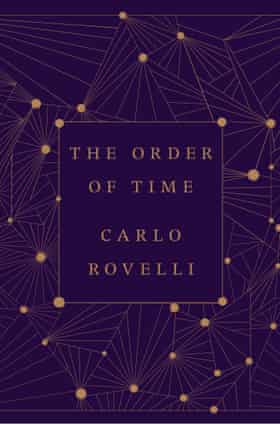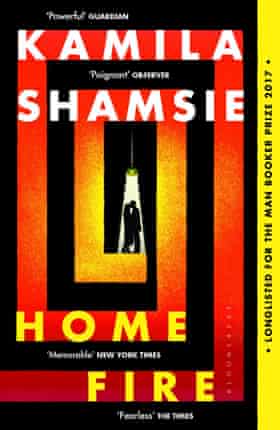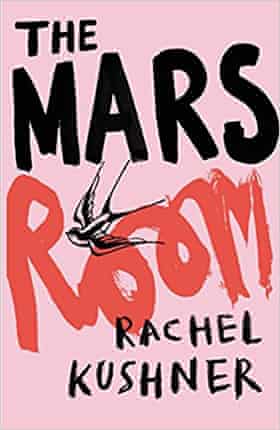Chimamanda Ngozi Adichie
Meg Wolitzer’s The Female Persuasion (Chatto) is wonderfully dense and wise, a page-turner that succeeds both at character and ideas. It felt true to life.
Cuz: The Life and Times of Michael A (Bodley Head) by Danielle Allen, a memoir about the loss of a beloved cousin, is unbearably moving. It illuminates the injustice often meted out to young black men by the American criminal justice system.
Uzodinma Iweala’s Speak No Evil (John Murray), in which a young Nigerian American comes out as gay, is a coming of age story about the difficult, churning mix of family expectations. It is elegant and elegiac, and evokes Washington DC with subtle power.
John Banville

The Years by Annie Ernaux (Fitzcarraldo, translated by Alison Strayer) is a remarkable work, a truly innovative autobiography that opens new ways of remembering and recuperating the past.
The Long Take, by Robin Robertson (Picador), is a narrative in verse set in the immediate post-war years in America, that is at once heartbreaking and bracing. Think of it as the best black and white 1940s movie you will ever encounter in print.
The Order of Time, by Carlo Rovelli (Allen Lane, translated by Erica Segre and Simon Carnell), hardly seems like pool-side reading, but anyone with the least interest in the science of the physical world will be by turns astonished, baffled and thrilled by what Rovelli has to say about the true nature of time, which has little in common with our everyday conception of it. Rovelli is the poet of quantum physics.
Seamus Heaney 100 Poems (Faber) is an essential collection, which the poet meant to make before he died, and which the Heaney family have now completed. A feast of beauty.
Julian Barnes
I’ve greatly enjoyed two group biographies: Agnès Poirier’s rich and funny Left Bank (Bloomsbury), about cold rooms and hot ideas in postwar Paris; and Martin Gayford’s wise and generous Modernists and Mavericks (Thames & Hudson), about artists in London from 1945 to 1970. And what to read in homage to Philip Roth? Maybe American Pastoral.
Sebastian Barry
Mark O’Connell’s To Be a Machine (Granta), a very lively book about transhumanism, won the Wellcome prize. Sally Rooney is 27 and so won’t be worrying about mortality – she entered the landscape fully fledged in the now traditional Irish manner, and with great power, – like Katherine Mansfield and Elizabeth Bowen fused together – with Conversations with Friends (Faber). Just in case it gets lost in the newer dazzle, it’s worth mentioning again Red Dirt (Head of Zeus, 2015) by EM Reapy, which won the Rooney prize, an Irish stormer set in Australia.
William Boyd
I’m lucky enough to be reading Only to Sleep by Lawrence Osborne (out from Hogarth in September). A brilliant Raymond Chandler continuation novel with an ageing Philip Marlowe. Osborne and Chandler are a perfect match. Luke Kennard’s wit and astonishing virtuosity, so present in his poetry, have safely made the journey to his beguiling first novel The Transition (4th Estate): very funny, gimlet-eyed observation. Talking of poetry, Michael O’Neill’s latest collection Return of the Gift (Arc) is wise, lucid and pitch perfect.
Mary Beard

I just read Kamila Shamsie’s Home Fire (Bloomsbury). It’s brilliant in itself, but it also made me rethink Sophocles’s Antigone, on which it is loosely based. For some high-fibre holiday reading, I shall be packing Josephine Quinn’s In Search of the Phoenicians (Princeton), which dares to ask whether that famous ancient people really existed, and promises to expose the modern fantasies and ideologies that created them.
James Bridle
Broad Band (Portfolio) is a brilliantly written and necessary history of our foremost cultural technology by Claire Evans. It illuminates the occluded contributions of many women to the medium over more than 150 years, and transforms our understanding in doing so. From mathematicians to community managers, engineers to speleologists, Evans shows how the internet’s past, present and future are all utterly contingent upon its radical diversity.
Daniel Trilling has spent years tracing the routes taken by migrants from across Africa and the Middle East to Europe, meeting people and keeping in touch with them along the way: in camps, in cafes, and on Facebook. In Lights in the Distance (Picador) he tells their stories – or, more often, allows them to tell their own – calmly, clearly and deeply affectingly, never losing sight of the violence, brutality and pervasive racism that underlies and maintains the present situation.
Kayo Chingonyi
Let Me Be Like Water by SK Perry (Melville House) is a wonderful debut novel about how we find our feet again after a bereavement. It’s one of the best evocations of the grieving process I’ve read and is written in a fluid engaging style that draws you in to the protagonist Holly’s world.
There is not a word wasted in Fondue, the second collection of poems by AK Blakemore (Offord Road). I was struck by Blakemore’s gift for crafting memorable and devastating images that stay in the mind long after you’ve closed the book.
I saw Michael Donkor read at Brixton library recently and was enthralled by the extract he shared from his debut novel Hold (4th Estate), which moves between London and Ghana. I am looking forward to reading it in full.
Jonathan Coe
Far and away the funniest (and saddest) new book I’ve read this year is The Collected Letters of Flann O’Brien (Dalkey Archive), although I’m slightly reluctant to suggest that anybody packs this 600-page doorstop in their beach bag. Otherwise, having just finished writing a novel myself, I’m eager to dive back into other people’s fictional worlds, and am looking forward, equally, to Whistle in the Dark (Viking) by Emma Healey – which I’m told is even better than the excellent Elizabeth Is Missing – Old Baggage (Doubleday) by Lissa Evans (a novel of the suffragette movement that promises to be both warm and funny) and, for a bit of cold-eyed post-Brexit satire, Perfidious Albion (Faber) by Sam Byers.
Anne Enright

I am really enjoying Catherine Lacey’s short stories Certain American States (Granta) so will read her first novel Nobody Is Ever Missing to catch up. She is playful and smart, one of a generation of American women who seem entirely unafraid. Rachel Kushner’s The Mars Room (Jonathan Cape) shows what happens when a smart writer gets truly serious. It is a necessary and compelling book, and this year’s must read. I will also bring proofs of Robert Alter’s translation of the Bible (out from Norton in December), the first single author translation ever to be published, and Human Relations and Other Difficulties (Profile), a collection of essays by Mary-Kay Wilmers, whose intelligence I find endlessly opaque and interesting.



No comments:
Post a Comment